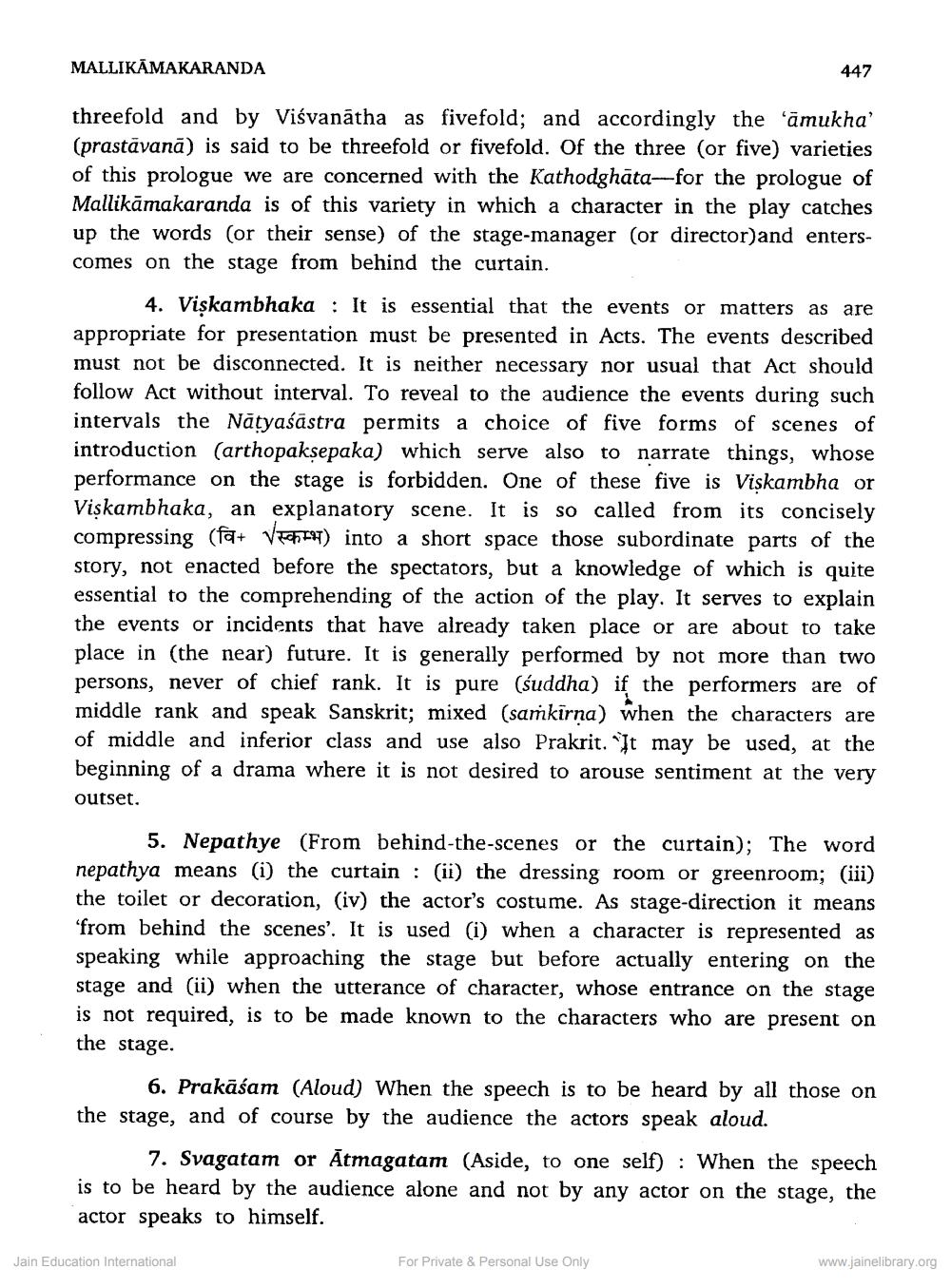________________ MALLIKAMAKARANDA 447 threefold and by Visvanatha as fivefold; and accordingly the 'amukha' (prastavana) is said to be threefold or fivefold. Of the three (or five) varieties of this prologue we are concerned with the Kathodghata--for the prologue of Mallikamakaranda is of this variety in which a character in the play catches up the words (or their sense) of the stage-manager (or director)and enterscomes on the stage from behind the curtain. 4. Viskambhaka : It is essential that the events or matters as are appropriate for presentation must be presented in Acts. The events described must not be disconnected. It is neither necessary nor usual that Act should follow Act without interval. To reveal to the audience the events during such intervals the Natyasastra permits a choice of five forms of scenes of introduction (arthopaksepaka) which serve also to narrate things, whose performance on the stage is forbidden. One of these five is Viskambha or Viskambhaka, an explanatory scene. It is so called from its concisely compressing (fa+ Vict, 197) into a short space those subordinate parts of the story, not enacted before the spectators, but a knowledge of which is quite essential to the comprehending of the action of the play. It serves to explain the events or incidents that have already taken place or are about to take place in the near) future. It is generally performed by not more than two persons, never of chief rank. It is pure (suddha) if the performers are of middle rank and speak Sanskrit; mixed (samkirna) when the characters are of middle and inferior class and use also Prakrit. It may be used, at the beginning of a drama where it is not desired to arouse sentiment at the very outset. 5. Nepathye (From behind-the-scenes or the curtain); The word nepathya means (i) the curtain : (ii) the dressing room or greenroom; (iii) the toilet or decoration, (iv) the actor's costume. As stage-direction it means 'from behind the scenes'. It is used (i) when a character is represented as speaking while approaching the stage but before actually entering on the stage and (ii) when the utterance of character, whose entrance on the stage is not required, is to be made known to the characters who are present on the stage. 6. Prakasam (Aloud) When the speech is to be heard by all those on the stage, and of course by the audience the actors speak aloud. 7. Svagatam or Atmagatam (Aside, to one self) : When the speech is to be heard by the audience alone and not by any actor on the stage, the actor speaks to himself. Jain Education International For Private & Personal Use Only www.jainelibrary.org




